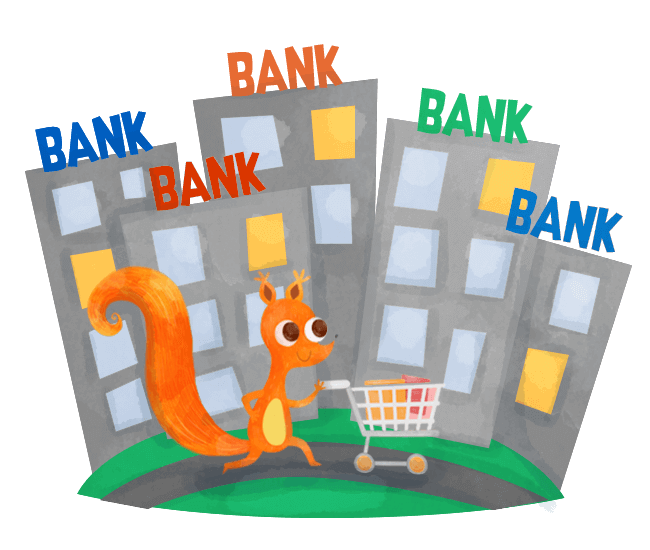
If you’re like most Canadians, your introduction to banking went something like this: Your parents walked you across the street to the big bank they’ve always banked with and they helped you open your first bank account, depositing a few dollars to help you get started. You walked away with a colourful bank book (I vividly remember mine: teal, pocket-sized, with a bicycle on the front), maybe a bank-branded piggy bank, and a sense of pride that you’re just a little more mature than you were mere moments before.
And, if you’re like most Canadians, you still bank there to this day.
According to Ratehub.ca’s Banking Behaviour Survey (which included over 1,100 Canadians), 42% of Millennials have held their primary bank account for 11 years of more. That jumps to 46% among Gen Xers and 54% among Boomers.
So, Canadians are generally pretty loyal when it comes to their banks. But should they be?
Sure, it’s convenient to stick with the same bank you’ve known most of your life. It’s familiar, you know where your local ATMs are, and you know how much it costs you to bank with them. But that’s the thing: It’s costing you. More than you may realize.
Let’s take a look at some numbers.
For our purposes, we’ll estimate how much the average Canadian adult may be paying per year in banking fees. We’ll also look at how much they may be earning in savings, using some popular account options. Note: All accounts mentioned will be from the same (unnamed) financial institution. It’s important to note, though, that the big five banks all offer very similar banking options.
One major reason to switch up your financial providers is to save money on fees. If you have an unlimited chequing account with a big bank, you’re paying as much as $14.95 per month. That amounts to $179.4 per year.
That’s a pretty hefty chunk of change that adds up over the years. Many Canadians chalk this up to the price of doing business with a bank. However, it doesn’t have to be this way.
There are several, smaller banks in Canada that offer the same unlimited banking experience at the big banks but with no monthly fees. Alterna Bank’s e-Chequing Account and Simplii Financial’s No Fee Chequing Account are two such options that will help you save nearly $180 per year.
If you’re currently saving for something in the short-term, high interest savings accounts are a great way to squirrel away that extra cash. The problem, though, is the term “high-interest savings account” is somewhat of a misnomer; many big bank high-interest accounts offer a paltry 0.5%.
Assuming a balance of $10,000, that account would earn you $50 per month in interest. Transfer that money over to another provider, though, and you could earn much more.
MAXA Financial, for example, currently offers one of the highest available interest rates for a high-interest savings account in Canada. Its no-fee MAXA Savings account provides 2.45% interest – good enough for a first-year return of $245.
The average home in Canada sold for $455,000 in January. According to Ratehub.ca’s mortgage payment calculator, a mortgage for a home at that price with our big bank example would cost $1,835 per month (assuming 20% down, amortized over 25 years, at the bank’s best available five-year fixed rate of 3.59%). That’s a total of $22,020 in the first year.
However, using the best mortgage rate in Ontario (2.99% from HSBC) the cost of a mortgage on that same home would be $1,721; a total of $20,652 per year. That would mean a savings of $1,368 per year.
So, why is it smart to change up your financial providers? It’ll save you money. A lot of it.
Using our three examples, any Canadian who decided to seek out the best possible financial options, regardless of institution, would save $1,742 in one year.
YOUR FREE FINANCIAL PLAN
The best financial plan is also the easiest.
Build your free plan today.
Start now